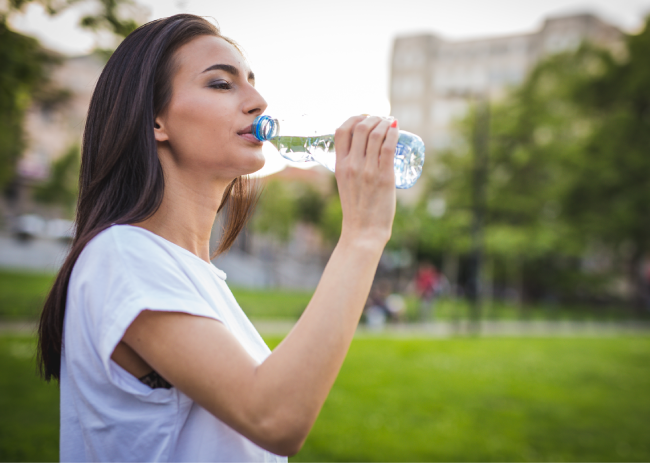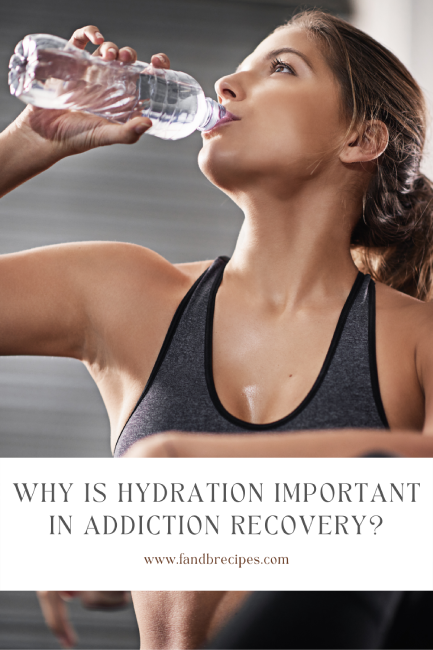Why Is Hydration Important In Addiction Recovery?
Are you getting enough water? Water is essential for overall health and wellness, and it is also essential for addiction recovery and treatment. Hydration benefits people going through detoxification, facing withdrawal symptoms, and maintaining abstinence from any kind of intoxicants, in addition to their body systems, mood, and longevity.
If you’re dehydrated, you won’t be able to perform well mentally, physically, or emotionally.
Hydration is vital during addiction recovery, regardless of the drug detox procedures utilized.
Let’s find out why.
Benefits Of Hydration In Addiction Recovery
If you seek an appropriate inpatient residential treatment at drug rehab, you will learn the importance of hydration directly from the medical professionals there. But, if you want to get the upper hand here, go through the following reasons:
1: It Helps In Detoxification
Water aids in the removal of toxins, which is critical when detoxing from substances.
The faster poisons leave your body, the less you’ll crave chemicals and experience withdrawal symptoms.
Electrolytes, which are lost during detox, should be supplemented with water.
Hydration improves the efficiency of your body’s metabolism and detoxification. In a nutshell, it is faster, which helps you feel better faster throughout this unpleasant, if not painful, period.
2: It Helps Prevent Dehydration
If you’re detoxing from alcoholism, you’ll need to stay hydrated to avoid dehydration.
Because alcohol is a diuretic, your body loses water every day. Therefore, it may be significantly more challenging to abstain and recover from addiction if you are dehydrated.
Did you realize that dehydration can be harmful to your health?
Body aches, heartburn, migraines, ulcers, kidney stones, backaches, and joint discomfort can occur throughout the detoxification process if you don’t drink enough water.
3: It Manages Cravings
Cravings for the substance can be quite strong during withdrawals, which is one of the main reasons why relapse is so common at this point.
Since drinking water speeds up toxin removal, it reduces cravings, which are a side effect of withdrawal.
Our body’s cells strive to revert to their normal healthy state when exposed to the detoxifying actions of water and electrolytes. The drugs are what cause the aberrant state, but as the substance is gone, cellular memory kicks in.
4: It Controls Withdrawal Symptoms
The detox process manifests itself in various withdrawal symptoms. However, when dealing with the impacts of detox and withdrawal, it’s possible that you won’t notice the indications and symptoms.
Know that detoxing and recovering from addiction can quickly dehydrate you owing to water output and any vomiting or diarrhea that comes with it. An IV is frequently used during medical detox to prevent dehydration.
If you keep your body hydrated, the withdrawal symptoms will fade faster and help the body get rid of pollutants.
How Much Should You Drink To Maintain A Healthy Body Post-Recovery?
Water aids detox by flushing toxins from the body through the urinary and digestive systems and sweating and perspiration. Electrolytes are very crucial for restoring body balance.
Simply, good hydration combined with proper nourishment provides your body with the resources it requires to detox and withdraw effectively.
So, when it comes to recovery and detox, what constitutes appropriate hydration?
Water consumption is typically one gallon for men and three quarts for women per day; however, you may require more depending on your output during detox.
You must remember that hydration comes from more than just the water you drink because roughly 20% of your daily intake is believed to come from the food you eat.
Substance withdrawal symptoms are usually the polar opposite of the expected effects of drugs or alcohol. Withdrawal from stimulants causes mood swings, lethargy, and exhaustion. Withdrawal from antidepressants causes nervousness, tremors, and agitation.
The withdrawal symptoms might last hours or days, depending on the amount and frequency of use. Withdrawal symptoms are rarely fatal, but they do occur. Withdrawals from benzodiazepines and alcohol are particularly harmful.
Hydration may not be enough if your withdrawal symptoms seem to go out of control. Although you have to drink 8 glasses of water every day, the symptoms may not disappear.
In those instances, you must consult a professional right away.
How To Stay Hydrated?
Are you getting enough water in your system?
It can be really beneficial in the rehabilitation process. Alcohol and drug addiction affect one out of every eight adults in the United States. Many symptoms appear or become more severe throughout this time.
This is largely due to the body’s inability to eliminate the material for its satisfaction. During this period, drinking a lot of water can help speed up the process.
- Soups, juices, and foods high in water, such as fruits, should all be included in your regular fluid consumption.
- Caffeine can cause dehydration, so avoid it. Even caffeine alters your body’s fluid balance, and makes you urinate more, which is another reason for dehydration.
- When you exercise, you should drink more. This is because you lose electrolytes through sweat when you exercise, and drinking enough water should compensate for that loss.
- Make it a habit to drink a full glass of water when you get up and before you go to bed. It will help you stick to your schedule of drinking 8 glasses of water every day.
- Invest in a reusable bottle to ensure that you get enough water wherever you go. Thus, you won’t ever feel parched and will always have something to drink.
- Infuse your water with fruits and vegetables to provide flavor and vitamins, such as a wedge of lemon for additional Vitamin C.
- HALT refers to situations that can cause relapse in recoveries, such as hunger, anger, loneliness, and tiredness. Drink water to stay hydrated and avoid relapse when you’re feeling these feelings.
In Conclusion
You should adopt a Holistic Recovery Approach to stay hydrated. Then, if you want to get through withdrawal symptoms, you could take advice from a variety of sources.
You could also borrow strategies from several schools of thought during recovery to determine what works for you, from acupuncture to exercise.
However, hydration is an essential part of addiction recovery, so make sure you follow our tips to stay hydrated and let us know if you need more details on this.




